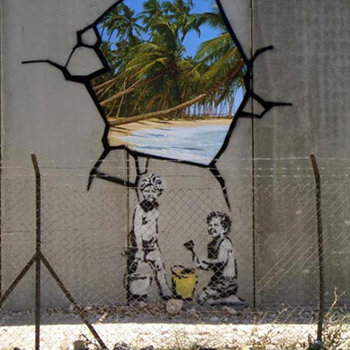Why was the ground war in Vietnam so difficult to fight?
2 Answers
There were a number of reasons.
Explanation:
Firstly most of the war was fought as a guerrilla war. This is a type of war which conventional forces such as the US army in Vietnam, find notoriously difficult to fight. Conventional forces are easy to identify, guerrillas are not. In Vietnam the Vietcong were peasants by day and guerrillas by night.
Secondly a guerrilla force only needs the support of a small % of the population to sustain its war. In Vietnam although a significant % of the population opposed the VC, their support amongst the population was easily enough to keep the war going.
Much of the terrain was suited to a guerrilla not conventional war. Again this favoured the VC. The Americans, laden down with conventional weapons and uniform were not equipped to fight in the paddy fields and jungles.
Although at a distinct disadvantage in terms of military hardware, the VC were ingenious in their use of booby traps such as punji stake traps and improvised explosives. This added to the psychological pressures faced by the US soldiers.
The organisation of American involvement was very poor. Almost 1 in 5 Americans were killed by their own side. Again this had a detrimental impact on morale and opposition to the war not only in the USA itself, but within the ranks of the common grunts mounted.
These factors combined, led to a feeling of optimism at the start to one where an American withdrawal became inevitable.
Agree with the above
Explanation:
There were (in my opinion) some other factors-
US insistence on using the (rushed in to production) M16 assualt rifle. This was nowhere near as effective as the AK47 which is cheaply made and far more robust. Especially in the jungle environments soldiers were operating in.
Conscript soldiers are never going to be as effective as professional soldiers or (viet) soldiers fighting for their perceived freedom from imperialist forces. The entire world learnt a lot from this conflict- on not how to conduct yourselves in a combat zone.
Lack of proper training hurt the troops who were rushed into theatre to replace the huge losses. Again this is something that the U.S military really has learnt from and soldiers are no longer rushed in country.
As stated above the organisation and command structures were absolutely awful. This in my opinion cost a huge amount of U.S. lives. The lack of knowledge relating to real ethnic make up in the entire golden triangle region was criminal. Early understanding of the cultures and their grievances would have saved many lives (again in my opinion).
All of this leads to the strategy implemented by the Chiefs of staff. Carpet bombing Vietnam, Laos and Cambodia did absolutely nothing. This has been proved historical fact. It simply turned more people against the US and left a lasting legacy of amputees in S.E. Asia.Fighting a gorilla army using conventional war tactics again cost lives. Early US military 'observers' were skilled special forces operatives.
If the command had listened then the US (in my opinion again) would have implemented a much smaller approach aimed at hearts and minds soldiering using highly trained operatives. Would this have been more successful? Operation Claret in Borneo although not on the same scale gives us a good indicator of what small groups of highly trained troops working with indigenous peoples can accomplish.


